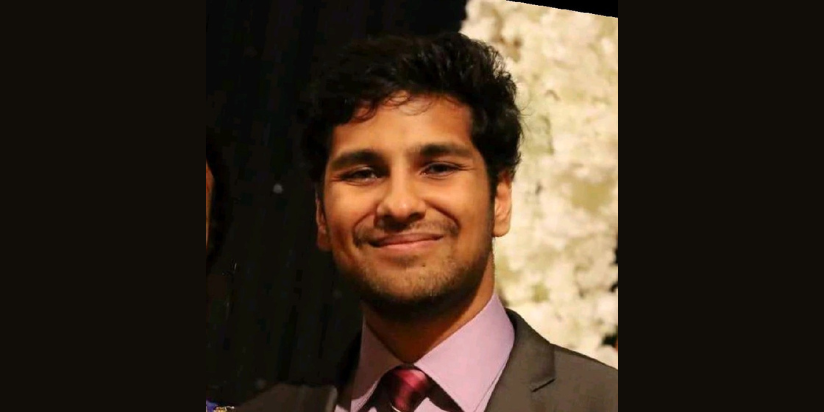
IfP Graduate Studentship Award recipient explores new methods for investigating long COVID
By Chloe Panganiban
Priyonto Saha’s passion for interdisciplinary learning and research stems from an academic background through the data and health sciences. Saha completed his undergraduate journey at the University of Waterloo with a triple major in Biostatistics, Computational Mathematics, and Combinatorics and Optimization. During his undergraduate degree, he completed co-op placements at various organizations like the Ontario Institute for Cancer Research and TELUS Health. These experiences solidified his choice to pursue a Master’s in Biostatistics. “I really, really liked research. I liked being a student. I liked to learn,” shares Saha.
Now, Priyonto Saha is an MSc Candidate in Biostatistics at the Dalla Lana School of Public Health. Supported by an IfP Graduate Studentship Award, his research, titled “A causal inference approach to equitably characterize long COVID across geographic clusters,” aims to quantify the impact of health disparities on long COVID (Post COVID-19 Condition (PCC)) across Canada’s diverse subpopulations.
Long COVID is a global health crisis that is inadequately addressed by current medical and public health measures. Additionally, for different individuals, the causal risk factors for long COVID are unclear. In response, this project proposes an innovative algorithm which combines causal inference, survival analysis, and clustered data analysis. Although these concepts and their pairwise combinations have been thoroughly researched and validated in isolation, this project is among the first to explore all three together.
With support from supervisors Kuan Liu and Aya Mitani at the Dalla Lana School of Public Health, Saha has extended existing causal survival approaches to accommodate diverse subpopulation clusters and is currently investigating his proposed methods through simulation. After validating his work, Saha aims to apply his approach to real-world clinical data with the guidance of respiratory disease specialists Dr. Andrea Gershon and Dr. Joseph Munn.
This project aligns with all three of IfP’s themes of pandemic recovery, readiness, and resilience. The project itself looks at pandemic recovery in the form of long COVID, and is interested in seeing how different exposures or treatments may affect and improve the duration of healthcare utilization and recovery times. The methods of this research, as well as the algorithm developed, are generalizable to other related biostatistical applications for similar observational data. As such, the project contributes to strengthening readiness and resilience in the face of future public health emergencies and/or pandemics.
“The mathematics is where the ideas lie. It’s about how we can look at the data in a way that allows us to quantify these ideas of cause and effect,” Saha says. The research therefore applies to real life clinical settings and contributes to the theoretical and foundational background of the field. With his work, Saha hopes to provide applied health researchers with practical guidance on how to handle clustered causal survival data.
Saha looks forward to continuing his academic journey at McGill University, where he will be starting his PhD in Biostatistics this September. He hopes to continue his passion for interdisciplinary research and learning, with goals of being an academic and professor in the future.
